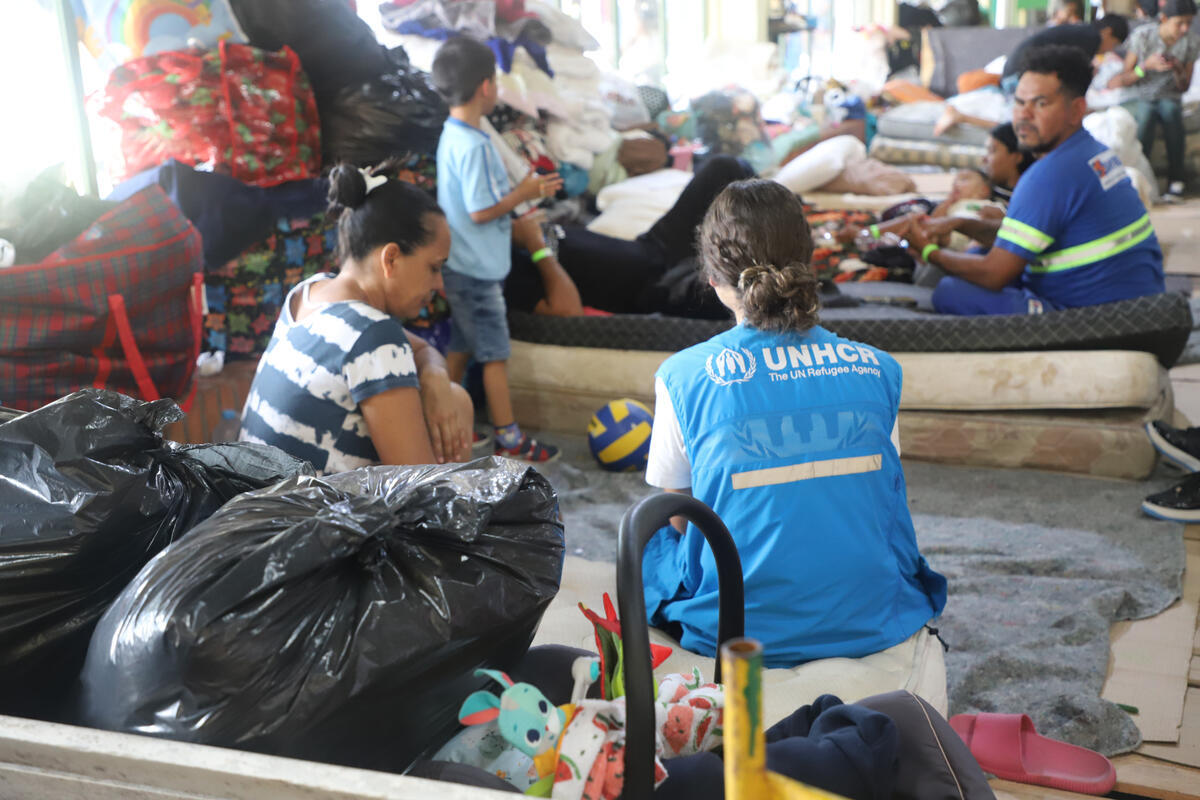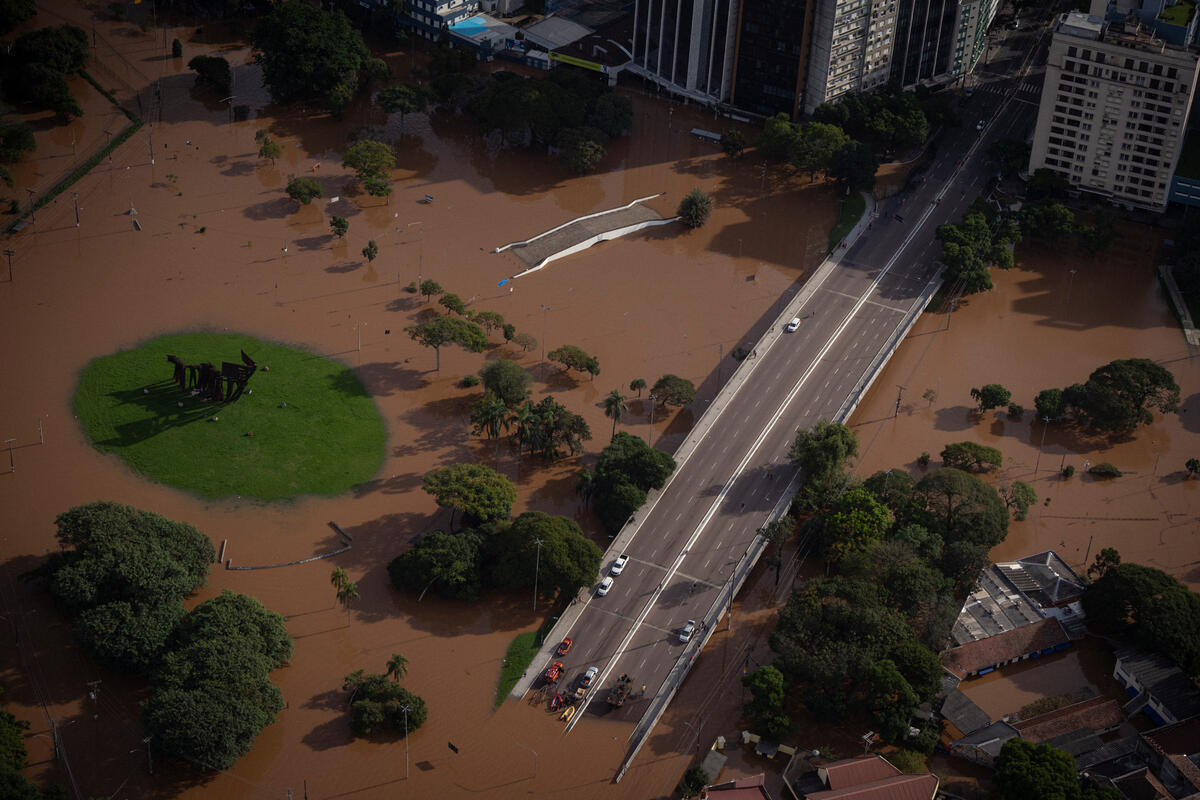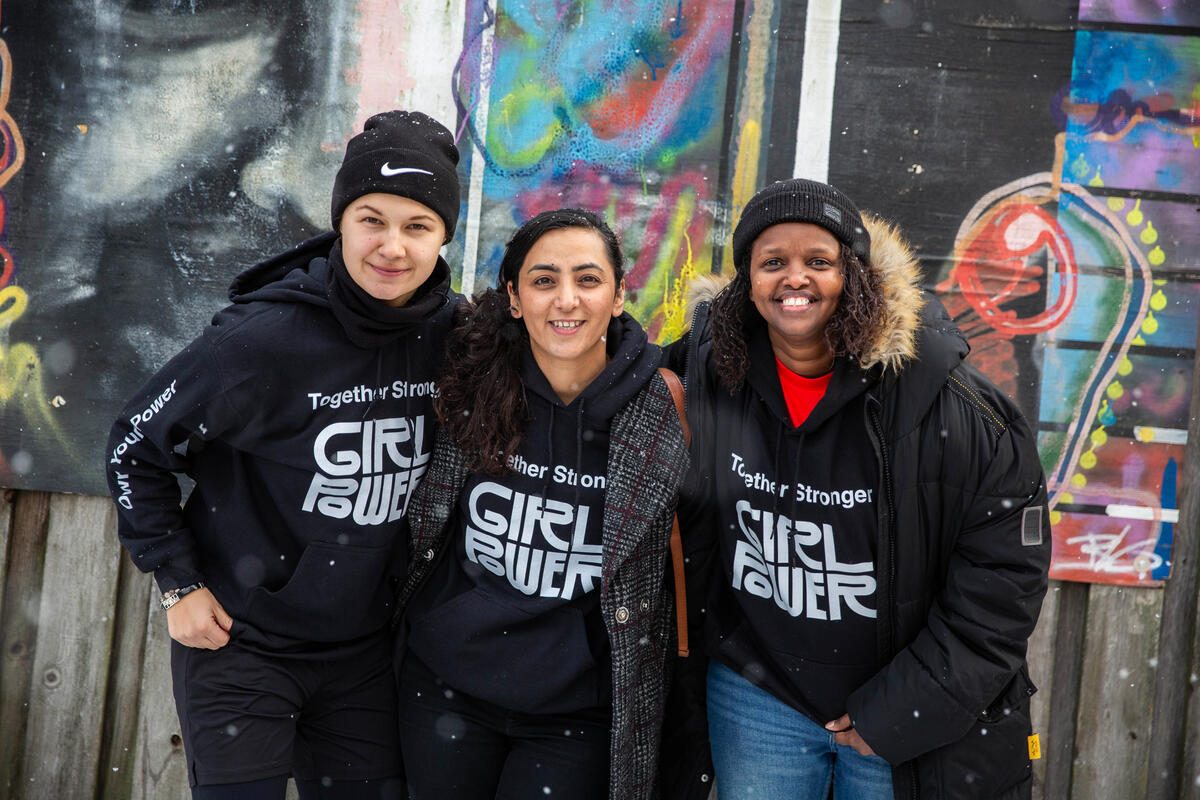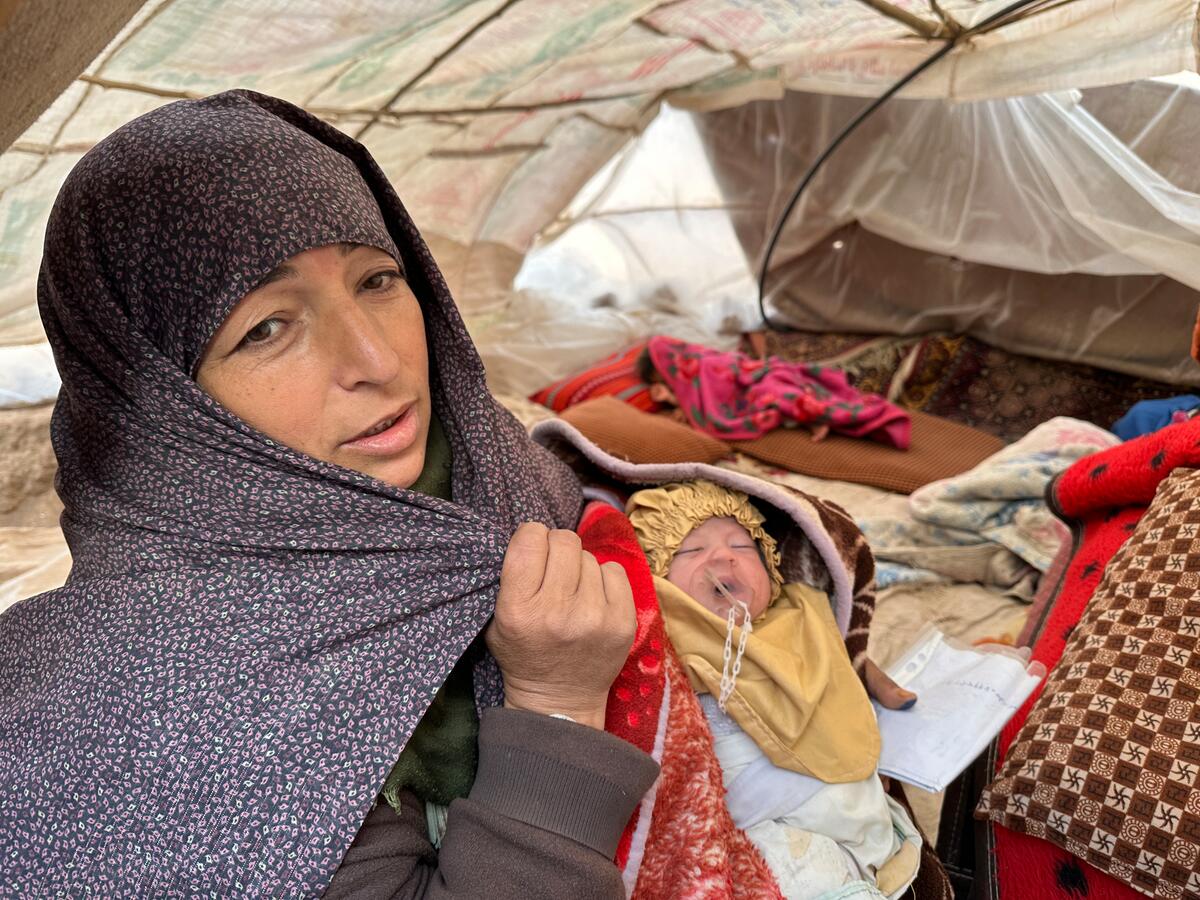Afghanistan Humanitarian Update No. 25
Afghanistan Humanitarian Update No. 25
At a Glance:
- High Commissioner to visit Pakistan, Iran
- More Afghans arriving at Killi Faizo temporary site in Pakistan
- Interviews continue with new arrivals in Peshawar region
High Commissioner to Visit Pakistan, Iran
UN High Commissioner for Refugees Ruud Lubbers is scheduled to leave Geneva on Friday (26 Oct.) for a one-week mission to Pakistan and Iran.
Lubbers will get a first-hand look at UNHCR's current state of readiness and preparations for a possible large-scale influx of Afghans. It will be the High Commissioner's second visit to the region in six months.
He is scheduled to spend two days in the Quetta region, where he will visit UNHCR operations and sites near the Chaman border and meet Balochistan provincial officials, NGOs and UNHCR staff.
On Monday and Tuesday, Lubbers is scheduled to hold talks in Islamabad with Pakistan government officials, members of the diplomatic corps and UNHCR staff.
He is scheduled to depart for Iran on Wednesday to review UNHCR preparations on that side of the Afghan border and to meet various officials in Teheran. He is expected back in Geneva on Friday.
More Families Arrive at Temporary Site in Pakistan
On Thursday, 148 people arrived at UNHCR's Killi Faizo temporary staging site, some 2 kilometres inside Pakistan near the Chaman border crossing. The new arrivals bring the total number of people at the site to more than 250 (54 families).
There are now 100 tents pitched at the site. A medical team of one doctor and two nurses from Médecins Sans Frontières examined 50 patients on Thursday. They also vaccinated 110 children, aged between 26 months and 15 years, against measles. All children at the site are now vaccinated.
Interviews with some of the new arrivals indicate that Afghans fear getting caught up in the bombing campaign or ending up in the middle of a land battle between the Taliban and its opponents. They continue to tell of a breakdown of law and order. Those from cities are particularly concerned about the danger of inter-factional fighting in residential areas.
Several hundred more people, most of them reportedly from the northern Afghanistan city of Mazar-i-Sharif, were waiting Thursday afternoon on the Afghan side of the border, hoping to be allowed into Pakistan. UNHCR workers on the ground were confident that the group would be allowed to cross the border. It is unclear why some Afghans are allowed in while others are stopped. UNHCR continues to call on neighbouring states to open their borders to those in need of protection and assistance. UNHCR has now established permanent presence at the Chaman border, staffed round the clock by a team of six UNHCR local personnel.
UNHCR has continued stockpiling relief supplies throughout the region. Overall, in the Quetta area, UNHCR stocks now include 13,300 tents, 6,000 hurricane lamps, 10,350 blankets, 16,100 kitchen sets, 18,150 plastic sheets, 1,000 stoves, 6,400 quilts, 1,000 jerry cans, 5,000 buckets, 3,000 bars of soap and 13 Rubbhalls (moveable warehouses).
Security Arrangements in North-West Frontier Province
UNHCR, the Pakistan Commissioner for Afghan Refugees and the Peshawar representatives of Khyber, Mohmand, and Bajaur Agencies have reached an agreement on security in the tribal areas. During site preparations and after the camps are established, local tribal police (Khasadars) will escort all UNHCR convoys. A Pakistan Army major has been assigned as Liaison Officer with UNHCR to deal with all security matters.
According to tribal area representatives, South Waziristan is calm. UNHCR and its partners had to stop work on one site there due land compensation claims by the landowner's family. Negotiations are ongoing. In North Waziristan, the situation is reported as more tense. The likelihood of a large influx through N. Waziristan is thought to be limited. As a result, development of the two sites there has been suspended.
Arrivals in Peshawar Area
UNHCR field staff are continuing interviews with Afghans who have entered the Peshawar area of Pakistan through little-used, unguarded entry points since September 11th.
An estimated 10,000 of the newly arrived Afghans are believed living in existing camps in the Peshawar area. Thousands of others are staying in and around Peshawar city, where they have relatives. Conditions are particularly difficult for Afghans in rented accommodation, due to price increases of some 40 percent.
Most of the new arrivals are Pashtuns and Tajiks coming from Nangrahar and Kabul. People interviewed spoke of increasing insecurity in their areas of origin and said they left because of fears of heavy bombing, possible retaliation by Northern Alliance forces, looting, and conscription.
Some refugees told the field officers about horrific experiences on the way to Pakistan. In one group, a young girl was maimed by a mine explosion while walking with her family over the mountains. In another group, a woman gave birth on the way, but the baby did not survive. The mother lived and managed to get medical attention.
Among those interviewed were some single women refugees, widows, orphans (who said their parents were killed in the air strikes or the continuing civil war), some seriously ill, and some wounded people who need immediate special care. According to the refugees, many families have become separated during their escape. Some families had to leave behind weak or disabled family members who could not manage the long walk to Pakistan. Others were left behind because they could not afford to pay for the journey and entry into Pakistan. Many reported family members stranded at the Afghanistan border.
Even if many of the new arrivals have joined relatives in Pakistan and are being helped by the existing Afghan community, a significant number of the most vulnerable people need immediate assistance. It is hoped that these people could be relocated to one of the new sites in the area, possibly to Bajaur agency where one site - "Kotkai" - is easy to develop and has a potential capacity of over 40,000. People would be transferred to the site on a voluntary basis. UNHCR has begun negotiating with the authorities on this possibility.
Reports from Kandahar
UNHCR has heard reports that the UNHCR office and warehouse in Kandahar have been looted. For some time, UNHCR has been aware that Taliban soldiers have been holding meetings in UNHCR's Kandahar office. People arriving in Pakistan from Kandahar have spoken of seeing some of UNHCR's nine vehicles being driven around town by armed men. As of early September, UNHCR's warehouse in Kandahar held more than 590 tents, some 500 plastic and canvas tarpaulins, thousands of shoes and clothing items, as well as school supplies.
Iran
During a regular visit to Milak border crossing near the town of Zabol in Iran's south-eastern Sistan-Baluchistan province, UNHCR's team met with a group of 35 Afghan families. The Afghans brought a list of 225 heads of families representing some 1,500 people who are wandering around the vicinity of Zaranj in Afghanistan's Nimruz province looking for assistance. One man in the group had brought his family with him up to the border, which remains officially closed, but they were not allowed to cross. The group included elderly people, children and infants. The youngest, around six months old, showed visible signs of malnutrition including thin arms and swollen feet and abdomen. The Afghans had only one blanket and very few belongings with them, and said they had been forced to sell everything else to buy some food which is now gone. The families said they would be afraid for their safety, particularly because of banditry and possible forced conscription, in either of the two Iranian Red Crescent Society camps being operated inside Afghanistan, Makaki and Mile 46. As of Wednesday night, according to IRCS there were 568 people in the Mile 46 camp and 3,740 in the Makaki camp, whose population had doubled over the past two days.








